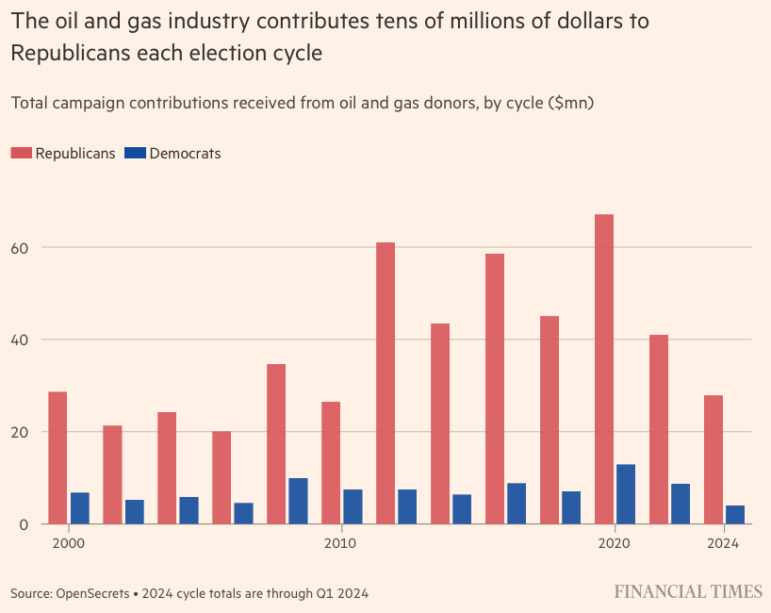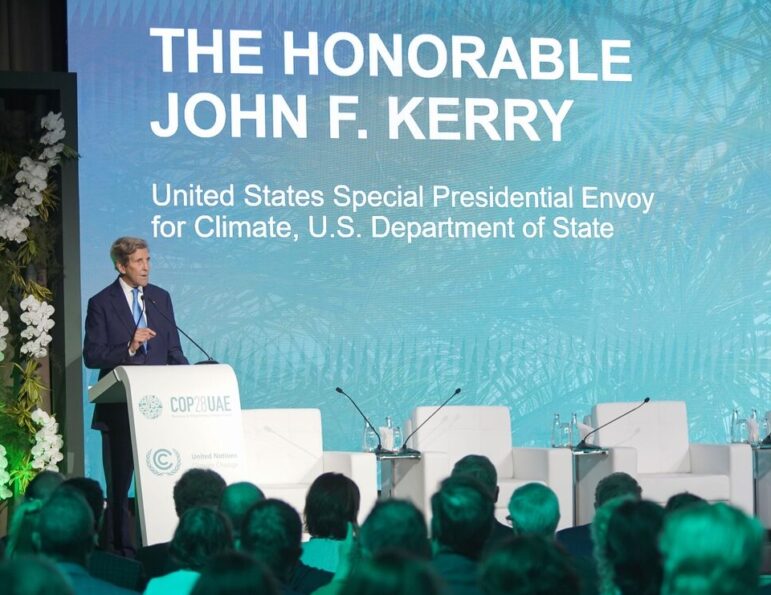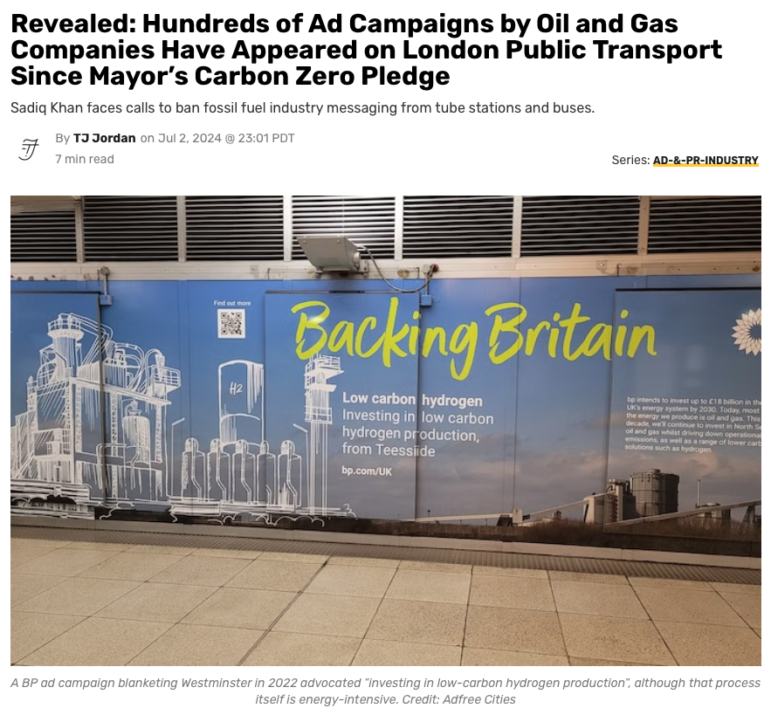

Illustration: Nodjadong Boonprasert for GIJN
Guide to Investigating Fossil Fuels: Lobbying
Read this article in
Guide Resource
Guide to Investigating Fossil Fuels
Chapter Guide Resource
Guide to Investigating Fossil Fuels: Introduction
Chapter Guide Resource
Guide to Investigating Fossil Fuels: Private and State-Owned Companies
Chapter Guide Resource
Guide to Investigating Fossil Fuels: Broader Industry Ecosystem
Chapter Guide Resource
Guide to Investigating Fossil Fuels: Lobbying
Chapter Guide Resource
Guide to Investigating Fossil Fuels: Greenwashing
Chapter Guide Resource
Guide to Investigating Fossil Fuels: Government Regulations and Policies
Chapter Guide Resource
Guide to Investigating Fossil Fuels: The Industry’s Future
Chapter Guide Resource
E-Book: Reporter’s Guide to Investigating Fossil Fuels
The image of powerful oil lobbyists pulling the strings in political capitals around the world is so embedded in the public consciousness that it has almost become a cliche. But as countless investigations have shown, there is truth underlying the trope. Whether the goal is to block a particular climate regulation, reduce tax rates, gain access to public land for oil and gas exploration, or influence how decision-makers conceive of our future energy system, there are myriad ways in which the fossil fuel industry seeks to influence policy outcomes, and very often it is successful.
Oil and gas companies are obligated to maximize returns for shareholders, which means they often oppose regulations that impact their bottom line, regardless of the wider public interest. The volume of money that companies can deploy to shape policy, and the sophisticated way in which these funds are spent by armies of lawyers, PR advisers, and political consultants, put civil society groups, and even government regulators, at a significant disadvantage. According to OpenSecrets, US oil companies spent $72 million on federal lobbying in the US in the first six months of 2024 alone.
The following chapter explores how fossil fuel companies seek to influence decision-makers and, crucially, provides advice on how journalists can uncover evidence of these efforts and bring them to the public’s attention. The range and scale of investigative work that has been carried out into the oil and gas industry is enormous — with a number of blockbuster lobbying investigations in the last few years alone. This includes stories on the following revelations.
- The extremely close relationship enjoyed by TotalEnergies with the French foreign ministry, by Le Monde. Economy Minister Bruno Le Maire asserted to the country’s senators that TotalEnergies did not benefit from “any favorable treatment.”
- The oil bosses raising significant funds for Trump’s reelection bid, per The Washington Post and Financial Times. The oil executives named in the stories declined to comment.
- A “covert” lobbying campaign by mining and oil giant, Vedanta, to weaken environmental regulations in India, published by OCCRP and The Hindu. Vedanta said that it engages with the government as part of efforts to ensure that India is more energy-independent.
- How a $10 million lobbying campaign by Occidental Petroleum helped it obtain hundreds of millions of dollars in carbon capture subsidies, by Bloomberg. Occidental declined to comment on the findings.
- ExxonMobil’s lobbying against a key Biden administration climate package, and its lobbying tactics, revealed by Unearthed and Channel 4 News. Exxon said that its lobbying was related to the tax increases that helped fund Biden’s infrastructure package.
- How oil companies have pulled funding for algae research, which formed a key part of recent efforts to convince policymakers and the public the companies are serious about tackling climate change, by Drilled and the Guardian. Exxon said that in its 12 years working on algae biofuels, it had invested $350 million.
The chapter is broadly divided into two sections, the first on direct lobbying — efforts by companies to directly influence decision makers via donations and persuasion; the second on indirect lobbying, a range of activities undertaken to influence public opinion and pressure decision makers. For the sake of clarity and coherence, the chapter will focus on the oil and gas lobby, although many of the tips and tools work just as well for investigating coal companies or renewable energy firms.

A Financial Times investigation into Donald Trump’s solicitation of oil company donations for his 2024 presidential campaign documented the industry’s close financial ties to the US Republican Party over the years. Image: Screenshot, Financial Times
Tips and Tools
Geography
Unless you are starting with a concrete lead, it is important to orient yourself, since oil and gas companies will lobby where and when it serves their interests to do so. So, for example, a huge amount of lobbying by oil companies takes place in the United States. This is largely because the US is the world’s leading oil and gas producer and the world’s second-largest energy consumer. Even the international oil and gas majors make a large proportion of their profits in the United States. Consequently, most oil and gas lobbying in the US revolves around domestic efforts to make it easier and cheaper to drill for oil and gas (including via lower taxes) and pushing back against policies designed to reduce demand for their products, for example via support for electric vehicles and a decarbonized power grid.
Lobbying in the US takes place at all levels of government and everywhere within the political system — from Washington DC and the national political parties, to state capitals, and right down to the local level. The instigators of this lobbying are diverse, encompassing oil and gas majors, like Exxon and Chevron, and thousands of independent oil and gas producers — ranging from multibillion-dollar companies to family operations. And it’s not just the companies themselves. Trade associations (e.g. in the US, or the EU), consultants, and lawyers play a crucial role, too.
The picture looks very different in countries with limited oil and gas resources of their own. For instance, in Italy and France, oil and gas lobbying is dominated by the countries’ own oil majors, ENI and Total, respectively. In France lobbying is oriented towards seeking diplomatic support from the French government for the company’s activities abroad, where it has oil and gas operations. Similarly, as a retailer of petroleum products in Italy, ENI has allegedly played a role in seeking to shape national energy and climate policy. ENI declined to comment on the allegations, according to a report in the Guardian.
In a country with few oil and gas resources and no domestic oil and gas producers, the level of oil and gas lobbying is likely to be largely determined by how big an oil and gas consumer the country is. If it’s a small country with average levels of oil and gas demand and little likelihood of growth, there is unlikely to be much lobbying activity, whereas, for a major consumer of oil and gas, it is likely that companies, or petrostates, will seek both to become major suppliers and to shape policy debates around what the future of its energy system looks like, to ensure a role for their products.

The 2023 UN global climate conference COP28 in Dubai brought together representatives from around the world, like US Special Presidential Envoy for Climate John Kerry, but it was also attended by nearly 2,500 oil and gas lobbyists. Image: Tarek Ibrahim, Shutterstock
For example, a recent investigation that the Centre for Climate Reporting, the writer’s organization, carried out found that Saudi Arabia is seeking to artificially stimulate demand for its oil products in countries across Africa and South Asia by intervening to increase the number of fossil-fueled cars, buses, and trucks on their roads. When approached for comments, the Saudi government ignored the request.
In addition to lobbying at a country level, oil and gas companies also seek to influence multilateral institutions, such as the G7, G20, and UN. During UN global climate negotiations in Dubai in 2023 (COP28), a record 2,456 fossil fuel lobbyists attended the talks, which were overseen by the boss of the UAE’s state oil and gas company.
Key Actors
It is also important to map out the key actors in the space, whether in the particular country you are investigating or multilaterally. For example, in Australia, there are international oil and gas majors, including Chevron, Exxon, BP, and Shell, but there are also major domestic players like Santos. Then, there are national and state-level trade associations that lobby on behalf of the industry. These can be fossil fuel-specific, like Australian Energy Producers and the Queensland Gas Association, or economy-wide lobby groups, such as the Business Council of Australia.
These business associations can be a very good place to start when investigating direct and indirect lobbying activities by the oil and gas industry since they make it possible for companies to advocate in favor of controversial policy positions without having their brand directly attached to these efforts. If you find that a particular trade group is opposing a climate policy, it is worth looking for evidence of direct lobbying by oil and gas companies on that issue. Companies will often oppose a policy publicly via a trade association but lobby directly in private meetings with policymakers. During an undercover investigation into ExxonMobil’s political influence in 2021, one of the company’s top lobbyists described lobbying “under the guise” of the American Petroleum Institute on controversial issues, such as the use of PFAS, that it did not want to be publicly associated with. In response, Exxon said that it does not manufacture PFAS products but that it does use them.
From a reporting standpoint, there are a number of ways to uncover evidence of this direct lobbying. This includes the cultivation of sources in government departments, politicians and their staffers, and employees of any progressive companies involved in the trade groups. Also, try submitting freedom of information requests (although, in general, this is a decreasingly useful tool); and combing through publicly available databases of lobbying contact between companies and decision-makers (more on this below).
It is also worth looking out for issue-specific campaign groups set up by trade associations and oil companies, including so-called astroturf groups, that seek to give a false impression of public support for an industry position. A recent investigation by E&E News revealed that a number of fossil fuel and business-linked groups ran multimillion-dollar advertising campaigns in California, in the lead-up to a key public vote on climate policy. For instance, the president and CEO of the Western States Petroleum Association (WSPA) — a powerful oil and gas trade association — is on the Californians for Energy Independence (CEI) board, according to E&E News. CEI is linked to the WSPA, but its name appears to be designed to sound like a grassroots initiative by concerned citizens to give its messages more credibility. WSPA denied both funding the CEI ads and directing its strategy.
Key Issues
Another key starting point is to map out the legislative and regulatory initiatives and proposals underway that impact the oil and gas industry in a given country or through a multilateral institution. This could be a proposed windfall tax on oil and gas profits, a new law designed to reduce carbon emissions from oil and gas facilities, or a plan to provide subsidies to competing forms of energy like wind and solar. The quickest way to get across this is to speak to the think tanks and campaign groups that are tracking these issues closely, although it can also be pieced together through open source reporting. Again, the initiatives being lobbied on by oil and gas companies can include hyper-local rules on air pollution, new laws being debated in a national legislative body, or multilateral negotiations over a climate treaty.
It is important to understand the legislative and regulatory processes so that you can anticipate the kinds of lobbying that is going on.
For example, is it a regulation being put out for public consultation before being implemented without a vote? If so, lobbying will likely involve meetings between companies and senior government department officials, as well as written submissions on the issue (which may or may not be publicly available). There might be an advisory committee in a legislative body scrutinizing the proposals, and companies could also be working with friendly elected officials, or interest groups such as trade unions or trade associations, to exert pressure on decision makers to shape the new rule in their favor. In this case, getting hold of public responses can be a quick way to identify interest groups involved, and scrutinizing their statements can be a good way to work out who is working closely with the oil and gas industry. If you interview politicians, staffers or others close to the lobbying process, be sure to get names. It can also be useful to look at any publicly available databases of political donations and to track, either in person or by using social media, attendees of industry events.
Direct Lobbying
There are numerous ways to uncover details of direct lobbying by companies and industry trade associations, which will obviously differ depending on geography and the institutions involved. The following section will make some broad suggestions of places to start, with some illustrative examples of where to find information.
Political Donations
Oil companies have been giving politicians money for as long as there’s been an oil industry. The money changing hands can range from small-dollar donations to local politicians to larger sums paid to national political groups, and even to outright corruption. The reasons for making donations are varied and hard to pin down with any precision – but they can provide clues as to the political priorities of an oil and gas company.
For example, according to its website, ExxonMobil gives money to US state legislators (largely in areas where it has commercial interests) and, at a national level, to groups of lawmakers organizations that bring together state lawmakers and their staffs for meetings at luxury resorts. These groups essentially sell access to companies and high net worth individuals to help fund the reelection efforts of their members. The incentive for the companies is direct access, off the record discussions, to some of the most powerful politicians in the US, who are often directly involved in overseeing aspects of a company’s commercial interests.

Demonstrators protesting in London outside a fossil fuel industry lobby’s building. Image: Shutterstock
In the above example, we know Exxon gave specific organizations money because, to its credit, the company has published the information on its website. Many of the largest oil companies now provide details of such contributions, and also details of the major trade associations that they are members of, following investor pressure to be more transparent about their lobbying.
Otherwise, the OpenSecrets website is the best place to start when looking for information on political contributions in the US.
In the UK, donations can be searched for via the Register of Interests for the UK Parliament or via the Electoral Commission. Many countries do not publish this data at all, however. A good starting point to see if the country you are interested in publishes details of political donations is the International Institute for Democracy and Electoral Assistance website. In Europe, Follow the Money’s campaign finance investigation is also a great place to start. Where disclosure does not exist, the challenge will be to find human sources who are able and willing to share such information with you.
It is worth noting that these donations may come directly from a company or trade association or from individuals who are major shareholders. For example, in the 2024 US election cycle, the head of the pipeline firm Energy Transfer, billionaire Kelcy Warren, personally donated $5 million to Donald Trump’s successful reelection effort.
Correspondence and Meetings
Uncovering evidence of contact between oil company staff and decision-makers — and the content of these discussions — is clearly crucial when investigating lobbying by the sector. Such lobbying efforts can include responses to government consultations; speaking at legislative committees; email correspondence with officials and politicians; and both official and unofficial meetings with decision-makers. It can be difficult to uncover details of such meetings and correspondence, however, since both parties often go to considerable lengths to keep their exchanges behind closed doors.
Where they exist, lobbying contact databases are a good place to start, such as:
- US Lobbying Disclosure Act search, which enables you to identify lobbying activities by companies and any political consultants that they have hired to lobby the federal government and lawmakers, as well as how much has been spent each quarter.
- European Union (EU) transparency register, is similar to the above but also includes trade association membership information and lists of meetings with key officials.
- Transparency International U.K. database aggregating publicly available lobbying information for U.K. government departments.
- See this International Institute for Democracy and Electoral Assistance (IDEA) report for a list of lobbying registers (there are 16 globally).
These databases can also be useful for investigating the revolving door between industry and government — when senior industry officials take up jobs in government or government officials move to work in industry. Linkedin and other open source information can also help provide information about individual lobbyists or officials and their links (or not) with industry/government.
In areas where there is no lobbying register, it may be possible to piece together contact between companies and officials via press releases, social media posts, or conversations with industry or government sources. Or you could submit a freedom of information request where possible.
If you are able to identify meetings, a next step would be to find out what was discussed. Where freedom of information/right to information (FOIA/RTI) laws are in place, you can file a request for correspondence, minutes, and notes relating to the meeting and the issues that were discussed. However, depending on where you are based, FOIA/RTI has become less and less useful as governments seek to block and delay disclosure. In which case, it is best to also pursue a source-based approach by investing in building relationships across industry, government, political parties, and civil society. In cases where you have information suggesting that wrongdoing has taken place on an issue of major public interest during such meetings — but neither the company nor the government will provide substantive details — then undercover reporting techniques may be justified.
Another source of lobbying information is government consultation databases. For example, you can search for consultation submissions by companies and trade associations using the Regulations.gov website in the United States. Using this database can produce important public interest stories in cases where a company is lobbying against the public interest on a controversial topic. The EU also has a system for publishing consultation responses, although it sometimes requires submitting information requests for further details. For example, here are the collected responses to a consultation on electric vehicles, including a response from the natural gas industry lobbying for support for natural gas-powered vehicles.
Indirect Lobbying
Indirect lobbying is a broad concept and, as the name suggests, essentially refers to efforts to exert influence over decision-makers more circuitously. This can range from initiatives seeking to shape a specific policy proposal, such as the California Astroturf campaign referenced above, to ongoing efforts to shape the conventional wisdom on energy issues more broadly.
These deeper efforts to shape the terms of the debate over climate change are particularly important as they create an environment in which the actions required to tackle climate change appear radical, when compared with the more sober solutions being put forward by the oil and gas sector. The oil and gas industry seeks to achieve this in myriad ways, including: donations to — and close collaboration with — think tanks and academia; TV, social media and billboard advertising; the placement of industry-friendly media stories and narratives; letter-writing campaigns; and the cultivation and deployment of third party “validators”. All of this is designed to create a favorable environment for the industry’s direct lobbying, including by leveraging political pressure and media controversies that are of its own making.

A DeSmog investigation found an intense fossil fuel ad campaign focused on a key London metro station near UK government offices. Image: Screenshot, DeSmog
One oil association in the US, targeted key swing states ahead of the 2024 Presidential election with an advertising campaign that attacked the Biden administration’s efforts to reduce greenhouse gas emissions from the transport sector by its promotion of electric vehicles. The goal of the campaign appears to have been to make these policies politically costly with a view to weakening or overturning them post-election. Oil and gas companies also pay for targeted billboard advertisements to promote how ‘green’ they are or the crucial role gas can play in the energy transition in locations where there is a high concentration of policymakers, such as in the Westminster underground station in London or in the main train station frequented by EU officials in Brussels. A 2022 study estimated that the oil and gas supermajors had spent $750 million the previous year on climate-related communications.
The oil and gas industry has poured money into academia, with a recent academic study arguing that this has slowed the switch to green energy. The study says that fossil fuel industry donations have influenced universities to focus on climate efforts that would embed a future for fossil fuels.
Linked to this is support from the industry for influential think tanks, which provide both a bridge to policy-makers and potential third-party influencers that can make the oil company’s case for them. In recent years this has been an under-reported area, although in the US, The New Republic has drawn attention to the donations from various companies to foreign policy and free-market think tanks, suggesting there is a link between funding and the pro-industry messages that have emerged from such institutions. Similarly, investigations by Drilled, DeSmog, and the Guardian have revealed the role of oil companies and fossil-fuel-funded think tanks in a global clamp-down on climate protesters. For example, the investigation by the Guardian used freedom of information requests to uncover how oil and gas companies and their business associations have been lobbying state-level legislators across the US to crack down on peaceful protests against oil and gas expansion.
Greenwashing via the above tactics also plays a key role in indirect lobbying, although it also has other objectives, which are addressed in this guide’s chapter on that topic.
 Lawrence Carter is an investigative journalist whose work has primarily focused on climate change and political influence. He has investigated Big Oil’s war on US climate policy, fossil fuel-funded climate sceptics, and the petrostates seeking to keep the world hooked on oil. His 2021 undercover investigation into ExxonMobil’s obstruction of US climate policy led to two major Congressional inquiries. Lawrence’s work has been featured in the New York Times; Washington Post; Wall Street Journal; CNN; BBC; Financial Times; O Globo and others.
Lawrence Carter is an investigative journalist whose work has primarily focused on climate change and political influence. He has investigated Big Oil’s war on US climate policy, fossil fuel-funded climate sceptics, and the petrostates seeking to keep the world hooked on oil. His 2021 undercover investigation into ExxonMobil’s obstruction of US climate policy led to two major Congressional inquiries. Lawrence’s work has been featured in the New York Times; Washington Post; Wall Street Journal; CNN; BBC; Financial Times; O Globo and others.














